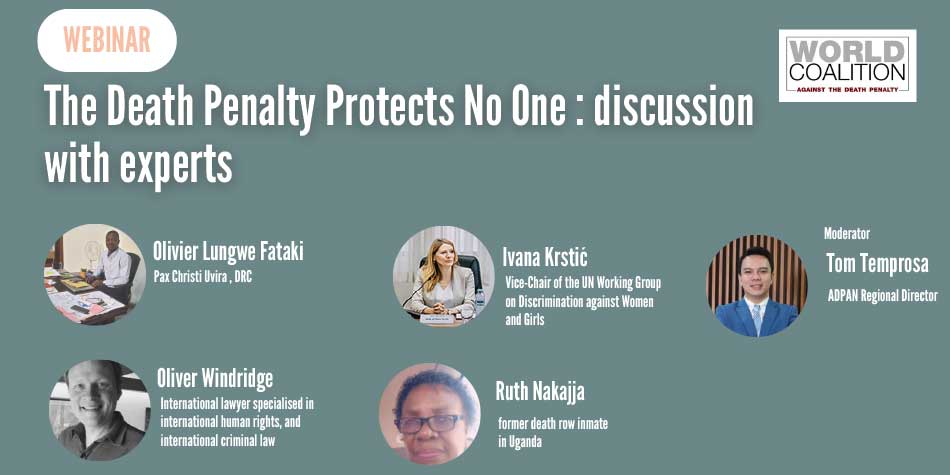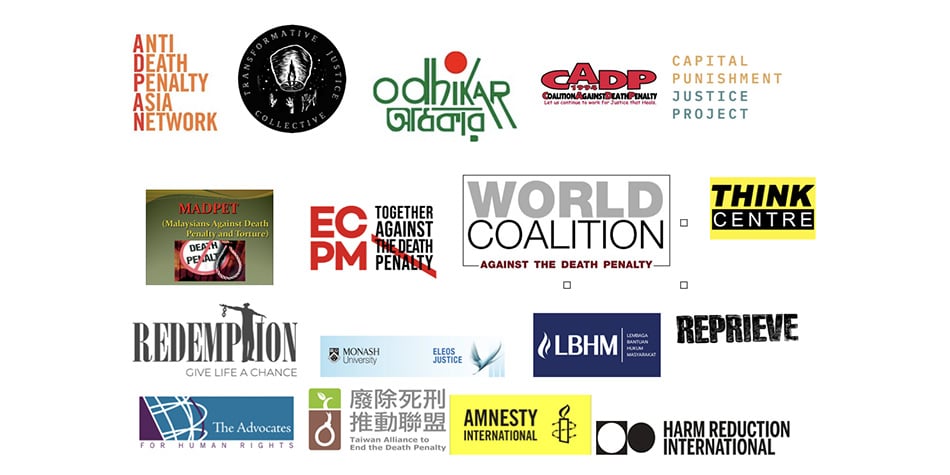World Coalition takes part in UN death penalty report launch
International standards
The meeting took place during the 19th session of the Commission on Crime Prevention and Criminal Justice (photo), an organ of the UN Office on Drugs and Crime (UNODC).
Twenty-five people including representatives from Germany, Spain and UK, UNODC staff members, academics from Japan, Spain and Ireland as well as NGO representatives attended the World Coalition’s event.
Miri Sharon, who is in charge of the death penalty at the UNODC, chaired the meeting and re-stated the position of the Office for the abolition of the death penalty.
Speedy Rice of the US National Association of Criminal Defense Lawyers and Jacqueline Macalesher of Penal Reform International (PRI) represented the World Coalition in Vienna.
Drawing from PRI’s experience, especially in North Africa and the Middle-East, Macalesher told participants to the side event: “The 8th quinquennial report demonstrates that there is a marked trend towards abolition. However, abolition of the death penalty is not carried out in a void. Abolition should take place in the context of an effective legal and criminal justice system, which enjoys public support.” She cited measures that gradually reduce the use of the death penalty, civil society involvement and the development of legislation and infrastructure to provide humane alternatives to the death penalty among the steps to be taken in many countries to achieve abolition.
“Sharply declining rates of use of the death penalty”
The Secretary General’s report was then officially presented on May 20. In the 65-page document, Ban Ki-moon states that “there is a growing trend towards abolition. This must be appreciated not only with reference to the traditional lists of abolitionist and retentionist States, but also by examining more closely the sharply declining rates of use of the death penalty in many retentionist States.”
However, the report highlights continuing violations of international law when the death penalty is used, including the execution of juvenile offenders and frequent sub-standard conditions on death row. “It appears to be beyond dispute that innocent people are still sentenced to death,” Ban adds.
While there was a debate between UN member states on the report, no country complained nor made any negative statement about it.
Invited to speak on behalf of the World Coalition at the presentation of the report, Rice welcomed it “as an essential tool to promote reasoned and factually correct dialogues among Countries, be they abolitionist, de facto abolitionist or retentionist”.
Lobbying and networking
Participation to the Commission’s session and the side event are part of the World Coalition’s continuous lobbying and information-gathering efforts targeting small numbers of high-level diplomats, academics and civil society representatives.
It was an opportunity for World Coalition staff to develop their knowledge of UN institutions in the death penalty field. “The Office of the High-Commissioner for Human Rights mostly operates through advocacy work (they send letters, press releases…) whereas the UNODC works more on the ground, provides technical assistance (access to legal aid, conditions on death row). They also work on crime prevention, provide guidelines for policy makers: the death penalty is not efficient and it is not a deterrent. They also work through the safeguards and juvenile justice,” said the World Coalition’s campaign officer Aurélie Plaçais.
> Download the 8th Quinquennial Report of the UN Secretary General on capital punishment
> Read the interview with World Coalition representatives by Inter Press Service
> Visit UNODC’s website







